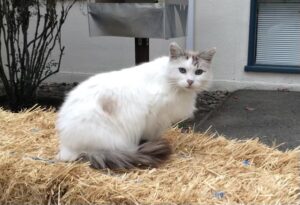My heart is filled with inconsolable grief. Today is a dark day in the midst of several throughout the last year. My idol, my mentor, Anne Beatts, has died.
As British artist Lulu sang in her hit single “To Sir, With Love,” “How do you thank someone who has taken you from crayons to perfume? It isn’t easy, but I’ll try…”
Anne Beatts was the first woman contributing editor for the National Lampoon, a humor magazine. This was in the early ’70s. Chauvinism was rampant. To have been the only woman in a group of chauvinistic, often racist WASP men speaks volumes about her tenacity and self-esteem. Breaking into “The He-Man Woman Haters Club” broke barriers for women in comedy (who are still fighting for space at the table). She subsequently became one of the founding writers for “Saturday Night Live”. Her writing was bright, hilarious and feminist without overwhelming the bit.
Fast forward to my first becoming aware of her: In 1982, she wrote and produced “Square Pegs,” a hilarious sitcom about high school, cliques and the misery and joy of finding yourself as an unpopular freshman. As a trans girl who didn’t know what the hell she was in fifth grade, this show resonated deeply with me. The starring role was Patty Greene, a geeky young writer nicknamed “Stringbean” by her peers. Being terminally unpopular, I sadly identified with this character, portrayed by a young Sarah Jessica Parker. But the character that had the most impact upon me was Jennifer DiNuccio (played by Tracy Nelson, daughter of Ricky, granddaughter of Ozzie and Harriet). Jennifer was a Valley girl, and not only was I smitten with her, the Valley girl trope was something I aspired to and eventually became. I began speaking Valspeak immediately, until my father told me to “Knock that shit off!” I tried to comply at home so as not to incur any further wrath, but to this day, it is so ingrained within me that if you hear me speak casually, there is, like, NO DOUBT that I’m TOTALLY from The Val, fer sure, ya know?
Fast forward even more … As a young bohemian stoner type, I naturally fell into reading
Anne wrote for and edited two amazing anthologies of women’s humor entitled “Titters” and “Titters 101.” Since no one at Mills teaches the writing of satire as an emphasis, and indeed, I am the only chick I know here who writes it — these books (along with my growing collection of
The senior thesis I’m finishing now is a satirical piece about collegiate life at Mills. Upon beginning it, I decided that since I had no one on campus to guide me in writing satire, I’d show some chutzpah and reach out to Anne. I found her email at Chapman University where she was a professor, and sent a message. To my shock and delight, she replied and called me though she didn’t know me from Eve. We spoke for an hour and a half, not only speaking about satire, but about ourselves. I told her I was dedicating my thesis to her, which I have. She asked to read this when I’d completed it, which she won’t. We won’t get to do coffee in The City, nor eat at The Formosa Cafe. And I grieve that. What I grieve most is that this mentor and heroine of mine won’t get to watch me strive as a lady satirist, and hopefully, one day, succeed.
What makes me happy, however, is that her spirit of generosity to an unknown, beginning lady satirist will live on. I told her that if I’m ever an authoress of note, I will pay her mentorship forward. Her sense of humor whilst smashing the patriarchy will live on. I intend to be an iron fist within a kid glove. But something that will live on for eternity that I have nothing to do with is her unique and powerful voice in women’s humor. Her voice is the lynchpin upon which all of the ways that I hope to honor her with my life and writing hinge upon.
Whoever said “Never meet your heroes!” had a shitty hero. My heroine was everything I hope to be, and I’m so grateful for the mentorship Anne Beatts gave me. I close this with the last email she sent to me. It was important to her that I know this, so it’s important to me that I share it.
“There was one quote I forgot to share with you from Paul Krassner, editor of the Realist: ‘The role of the satirist is pointing out that the emperor isn’t wearing any clothes.’”
Thank you, Anne. We’ve come a long way, baby.



